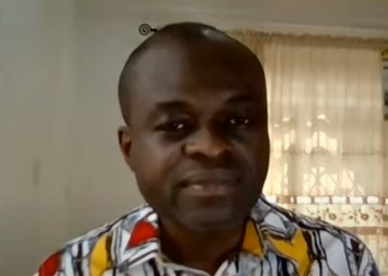Lawyer, Martin Kpebu, has called for the automatic implementation of Article 286 (4) of the 1992 Constitution as a more efficient and effective means of checking corruption in the country.
According to him, unlike the current anti-graft laws, which have done little to curb corruption in Ghana, the activation of Article 286 (4) in a manner that it is activated automatically at the end of a public officer’s term of office, would be most beneficial to the anti-graft campaign.
“That is the heart of the matter that is the one we need to implement, unexplained wealth. Somebody comes into office and then overnight he’s building properties left, right, centre, by the time he’s leaving he’s amassed so much wealth.
“That is what we need to implement; that there will be a law to implement the 286, Clause 4 that, at the time you’re leaving office, you appear before CHRAJ automatically and explain all your wealth,” he said.
Relying on historical precedents, Martin Kpebu noted that the implementation of the law after the Nkrumah regime, saw Ministers and other public officials who had engaged in corrupt activities, being held accountable.
“And then we’re saying that in our history when the Jiagge Commission sat, and history shows that people used to send evidence to the Commission in the night, they’ll go and push it under the doors, so the next morning by the time the commissioners and staff came, they would find envelopes that contain evidence that Mr. X upon becoming Minister built this house, bought this fresh car Bugatti, Lamborghini, you name them, and so investigate,” he said.
He, however, noted that for the law on unexplained wealth to be very effective, the government must find a way to make Ghanaians comfortable with leaking information to the regulatory body in charge of investigating such cases.
“You remember that the last time CDD, the last time I read something about this corruption fight, they said at least 8 out of 10 Ghanaians are scared of reporting corruption and other malfeasances against public officers.
“Most of our population are scared of reporting, so the only method or the more viable way of fighting corruption is that have a standing committee then people can send evidence surreptitiously,” he said.
Latest Stories
-
Resource GNFS instead of ordering their dismissal – Ntim-Fordjour to Ashanti Regional Minister
1 minute -
GOC President Ben Nunoo Mensah ‘will not contest’ in April’s Elective Congress
7 minutes -
IGP Yohuno makes sweeping police transfers, including 2 officers in leaked tape saga
27 minutes -
Electricity is no more free – Energy Minister warns SOEs
30 minutes -
Elmina Sharks to play behind closed doors for rest of season, fined GHS 20,000 for misconduct
51 minutes -
Labour Minister pushes for stronger HR policies and job creation
52 minutes -
Jordan Ayew names Christian Atsu as the best player he has ever played with
59 minutes -
Elmina Sharks’ Asamoah banned for a year, five officials suspended for rest of season
1 hour -
GPL: Hearts of Oak fined GHS 20,000 for allowing fans into ‘security zone’
1 hour -
GFA bans Elmina Sharks President Papa Kwesi Nduom for three months
1 hour -
Today’s Front pages: Wednesday, March 26, 2025
2 hours -
Kenyan police officer goes missing in Haiti gang ambush
2 hours -
One collapses, properties destroyed in Tuesday’s rainstorm in Damongo
2 hours -
Sudan army accused of killing hundreds in airstrike on Darfur market
2 hours -
Trump signs order aimed at overhauling US elections
3 hours

